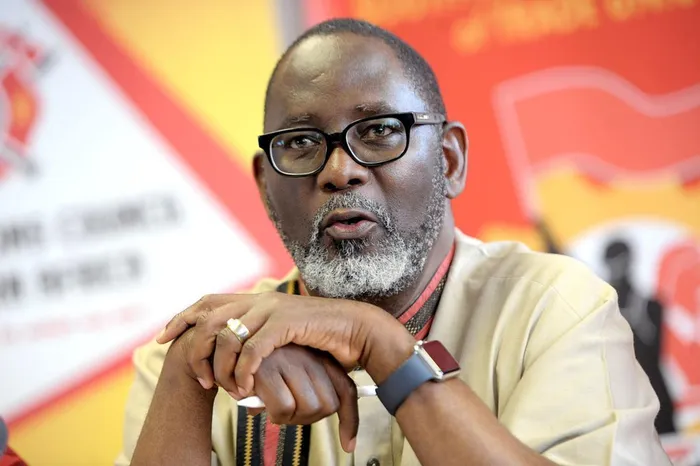Union's decline impacts ANC support base

Cosatu Secretary general Zwelinzima Vavi Cosatu Secretary general Zwelinzima Vavi
The ANC might have to fight next year’s general election without the hundreds of thousands of votes its trade union ally has delivered in the past. This isn’t because its alliance partner won’t organise votes for the ANC, but because it can’t.
The ally, Cosatu, held its conference recently. In a now-familiar ritual, it suggested it might not support the ANC next year. It then declared it would - but would expect policy concessions in exchange for support.
No one except a few reporters looking for material took this seriously. Cosatu regularly insists that its support for the ANC is conditional on the governing party adopting union-friendly policies. But, having stamped its foot, it always supports the ANC.
This was so when the ANC was run by former president Jacob Zuma, whom many in Cosatu opposed. It’s likely to be even more so now that it is led by President Cyril Ramaphosa, a former Cosatu unionist.
Union support at election time has, since the end of apartheid in 1994, been a huge asset for the ANC.
For some years after democracy’s advent, unions were the most organised force in South Africa. Cosatu, as the largest union federation, would use its organisation to mobilise its members - more than 2 million at its peak - and their families to support the ANC. No one is sure how many votes it got for the ANC, but it may well have run into millions. In theory, Cosatu backing it next year means that the ANC can rely on those votes again.
But in practice, both the votes that Cosatu mobilised and the implied bargain are in danger.
Cosatu is no longer the organisational hub it was when it mobilised the ANC vote. Its membership has dropped to 1.6million.
Part of the reason is that it expelled its biggest union, the National Union of Metalworkers of SA, which has more than 300000 members. This prompted other splits and the formation of a rival Federation of SA Trade Unions, which has cost Cosatu. Another reason is the constant loss of jobs in the smokestack industries that used to be Cosatu’s stronghold.
But the membership loss is also a symptom of a deeper malaise. The past few years have seen a weakening of the union movement as the gap between leaders and members has widened, and unions’ ability to mobilise members has declined.
The weakening of the union movement also reflects the country’s economic growth path: the gap between insiders who can enjoy the economy’s benefit, and outsiders who can’t, has remained. Union leaders have been absorbed into the insiders, leaving their members outside.
A general strike called by Cosatu last year to protest against an unpopular ANC leadership was a flop as union members ignored the call.
Inevitably, Cosatu’s ability to mobilise voters on the ANC’s behalf has also declined. This must have been a factor in the ANC’s electoral setback in 2014 in Gauteng, and in its countrywide decline in the 2016 local elections.
So, while the national debate often assumes that unions are no longer politically important, Cosatu’s decline may be making it much harder for the ANC to retain support.
While its alliance with the ANC is partly the product of a shared history, the ANC’s incentive to preserve Cosatu’s labour law veto has declined because it can no longer deliver millions of votes.
It may be no accident that laws limiting the right to strike are before Parliament. Whatever the merits of these changes, they do mean that the implied bargain is no longer operating fully because they reduce union bargaining power.
So the question is not whether Cosatu will help the ANC win elections, but whether it still can. The signs suggest it cannot - to its own and the ANC’s cost. The Conversation